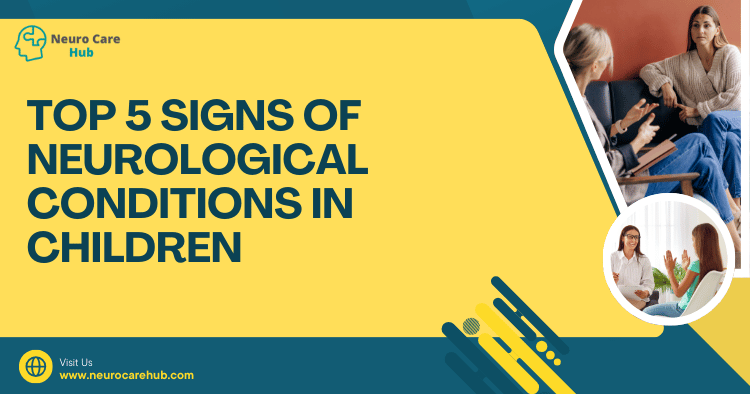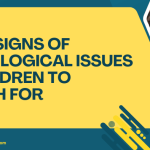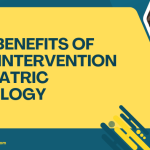Table of Contents
- Introduction
- 1. Delayed Developmental Milestones
- 2. Frequent Headaches
- 3. Changes in Behavior or Mood
- 4. Difficulty with Coordination
- 5. Seizures or Convulsions
- Conclusion
- FAQs
Introduction
Understanding your child’s health is a vital part of parenting, especially when it comes to recognizing signs of neurological conditions. The brain is a complex organ, and when issues arise, they can affect a child’s development, behavior, and overall well-being. In this article, we’ll dive into the top five signs that may indicate a neurological condition in children. We’ll provide insights to help you recognize these signs early, ensuring timely intervention and support.
1. Delayed Developmental Milestones
Children develop at their own pace, but some delays can signal underlying neurological issues. Key developmental milestones include:
- Motor Skills: By the age of 1, most children can sit up without support. If your child struggles to do this or does not crawl by 12 months, it may be worth discussing with your pediatrician.
- Language Skills: By age 2, children usually can say several words and start combining them into simple sentences. Delays in speech development could indicate hearing issues or other neurological concerns.
- Social Skills: By age 3, most children can engage in simple play with others. Difficulty in social interactions or a lack of interest in playing with peers can be a red flag.
Early identification can lead to better outcomes. If you notice significant delays in these areas, consider consulting a healthcare professional for further assessment.
If you notice significant delays in these areas, consider consulting a healthcare professional for further assessment. Early intervention can make a difference in outcomes, as emphasized in Top 5 Benefits of Early Intervention in Neuro Care.
2. Frequent Headaches
While occasional headaches are common among children, frequent or severe headaches should not be ignored. Types of headaches to watch for include:
- Migraines: These can manifest as intense throbbing pain, often accompanied by nausea or sensitivity to light. Children may also experience aura, which can cause visual disturbances.
- Tension Headaches: These may result from stress or anxiety and can present as a constant dull ache around the head.
Headaches can be more than just a nuisance; they can signal underlying neurological issues.
If your child is experiencing headaches more than once a week or if they interfere with daily activities, it’s advisable to consult a pediatric neurologist. They can help determine the cause and suggest appropriate treatments. For more insights on neurological disorders, refer to Top 5 Common Neurological Disorders Explained.
3. Changes in Behavior or Mood
Behavioral changes can often be the first sign that something is amiss. Watch for:
- Increased Irritability: If your usually cheerful child becomes easily frustrated or angry, it might be a sign of an underlying issue.
- Withdrawal from Activities: A sudden disinterest in favorite games or social activities can indicate emotional distress or neurological issues.
- Sleep Disturbances: Changes in sleeping patterns, such as insomnia or excessive sleeping, can also be linked to neurological conditions.
Behavioral changes can be subtle but are often the first indicators of potential health issues.
It’s important to differentiate between temporary mood swings and consistent changes. If these behaviors persist, a consultation with a mental health professional or pediatric neurologist may be necessary. For further understanding of how mental health intersects with neurology, see Neuro Care vs. Mental Health Care: Key Differences Explained.
4. Difficulty with Coordination
Children typically become more coordinated as they grow. However, if you observe persistent issues, it could indicate a neurological condition. Signs include:
| Sign | Description |
|---|---|
| Clumsiness | Frequent tripping or falling without obvious cause |
| Trouble with fine motor skills | Difficulty holding crayons, buttons, or using scissors |
| Poor balance | Struggling to ride a bike or walk on uneven surfaces |
Coordination difficulties can impact a child’s ability to engage in everyday activities and social interactions.
These coordination issues could be signs of conditions such as developmental coordination disorder or even more serious issues like cerebral palsy. If your child exhibits these signs, consulting with a pediatric specialist can help determine the cause. For more on diagnosis methods, refer to Top 5 Methods Neurologists Use to Diagnose Disorders.
5. Seizures or Convulsions
Seizures are one of the most concerning signs of neurological conditions in children. They can manifest in various ways:
- Generalized Seizures: These affect both sides of the brain and can cause loss of consciousness.
- Focal Seizures: These start in one area of the brain and can cause unusual movements or sensations.
Seizures can be alarming for both children and parents. Immediate medical attention is essential for proper evaluation and management.
If your child experiences any seizure-like activity, it’s critical to seek immediate medical attention. A thorough evaluation can identify the underlying cause and guide treatment options. For additional insights into managing seizures, check out Top 5 Effective Strategies for Managing Epileptic Seizures.
Conclusion
Recognizing the signs of neurological conditions in children can be challenging but crucial. If you notice any of the symptoms discussed, don’t hesitate to reach out to a healthcare professional. Early diagnosis and intervention can significantly improve your child’s quality of life and developmental outcomes.
Being proactive about your child’s health is the best way to ensure their well-being.
For further information, you can check out resources from the National Institute of Neurological Disorders and Stroke or the American Academy of Pediatrics.
FAQs
Q: What should I do if I notice these signs in my child?
A: It’s essential to consult a pediatrician or a pediatric neurologist. They can provide a thorough evaluation and recommend appropriate next steps.
Q: Can all neurological conditions be treated?
A: While many neurological conditions can be managed effectively, some may require long-term care. Early intervention often leads to better outcomes.
Q: Are neurological conditions hereditary?
A: Some neurological conditions can have a genetic component, but this is not always the case. Family history may play a role, so it’s important to discuss any concerns with your healthcare provider.
Q: How can I support my child if they have a neurological condition?
A: Support can come in many forms, including emotional support, educational accommodations, and therapy. Working closely with healthcare professionals can help you create a comprehensive support plan.
By staying informed and proactive, you can help ensure your child’s health and well-being. Also, look for more detailed discussions on neurological care in our articles about Top 5 Essential Insights on Neuro Care and Top 5 Reasons Neuro Care is Essential in Modern Medicine.






